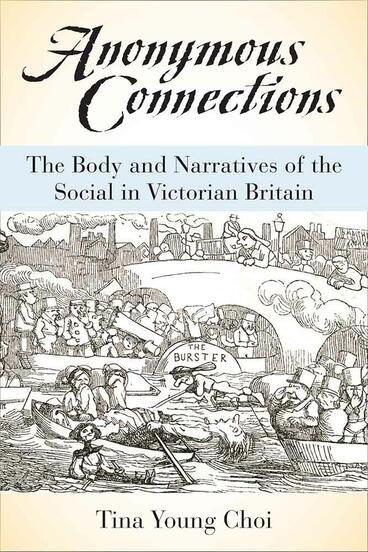Anonymous Connections
The Body and Narratives of the Social in Victorian Britain
An important contribution to Victorian literature studies with strong connections to cultural and medical history
Description
Anonymous Connections asks how the Victorians understood the ethical, epistemological, and biological implications of social belonging and participation. Specifically, Tina Choi considers the ways nineteenth-century journalists, novelists, medical writers, and social reformers took advantage of spatial frames-of-reference in a social landscape transforming due to intense urbanization and expansion. New modes of transportation, shifting urban demographics, and the threat of epidemics emerged during this period as anonymous and involuntary forms of contact between unseen multitudes. While previous work on the early Victorian social body have tended to describe the nineteenth-century social sphere in static political and class terms, Choi’s work charts new critical terrain, redirecting attention to the productive—and unpredictable—spaces between individual bodies as well as to the new narrative forms that emerged to represent them. Anonymous Connections makes a significant contribution to scholarship on nineteenth-century literature and British cultural and medical history while offering a timely examination of the historical forebears to modern concerns about the cultural and political impact of globalization.
Tina Young Choi is Associate Professor of English and of the Graduate Faculty in Science and Technology Studies at York University, Toronto.
Reviews
“Choi’s work makes a unique and original point: complex, multi-plot Victorian narratives and notions of the social order fed and were fed by one another. . . . This book will be an important one for scholars of Victorian literature and culture.”
—Laura Otis, Emory University

